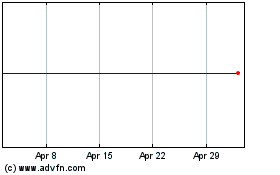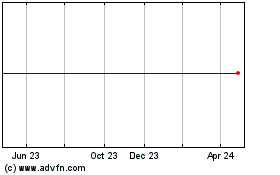By Emily Glazer
Twitter Inc. and Facebook Inc. are staking out starkly different
positions about how to handle political ads, but it is unclear how
either approach will prevent the spread of misinformation.
Some social-media websites have banned ads related to
candidates, political parties and legislation. But blocking
issues-based advertising, such as ads from advocacy groups or trade
organizations, can be hard to enforce, tech executives and media
buyers say.
Twitter said Wednesday that it would stop accepting political
and issue ads -- categories that constitute a fraction of the
company's total ad revenue -- world-wide starting Nov. 22, with
exceptions such as those encouraging voter registration. Other
platforms also allow ads relating to voter registration or
mobilization, but tech companies must consider who is paying for
those ads and what words they use in them.
Twitter considered stopping only candidate ads but decided that
issue ads presented a way to circumvent the ban, Chief Executive
Jack Dorsey tweeted. Twitter will release specifics on Nov. 15.
"Twitter has come up with the maximum response," said Alex
Stamos, a Stanford University adjunct professor who previously
served as Facebook's security chief. "That will get them the
short-term PR benefits but might be much more difficult to
enforce." For instance, Mr. Stamos cited the gray area around
blocking issue-focused ads, such as Nike Inc.'s ad featuring former
NFL quarterback-turned-activist Colin Kaepernick.
Facebook continues to allow all political ads to run and doesn't
fact-check statements from politicians, and on Wednesday CEO Mark
Zuckerberg staunchly defended the company's stance and
ad-transparency initiatives.
"Google, YouTube and most internet platforms run these same ads,
most cable networks run these same ads, and of course national
broadcasters are required by law to run them by FCC regulations,"
Mr. Zuckerberg wrote in a Facebook post. "Would we really block ads
for important political issues like climate change or women's
empowerment?"
Even Facebook's more hands-off approach raises potential
enforcement quandaries. Who qualifies for the fact-checking
exemption given to politicians -- and when -- has not been spelled
out, though Facebook has said it would not allow a California man
who announced a political campaign solely for the purpose of
running fake advertisements to take advantage of the exemption.
The scrutiny around digital political speech comes as lawmakers
have criticized companies for not being responsive enough in
stopping the spread of misleading information in past U.S.
elections.
Social platforms, including Twitch, video-sharing app TikTok,
and Pinterest Inc., each have policies blocking political
advertising. But that hasn't stopped candidates, campaign staffers
and digital-media buyers from finding potential loopholes to
advertise or otherwise get more attention on the apps or websites.
Digital political ad spending is expected to reach roughly $2.9
billion for next year's election, more than double the amount spent
in 2016, according to consulting firm Borrell Associates Inc.
The media buyer for Priorities USA, a progressive super
political-action committee, several times reached out to Pinterest
about running ads in the 2018 election in efforts to reach
middle-aged suburban women, people familiar with the matter
said.
Pinterest initially told Bully Pulpit Interactive, the media
buyer, it was still figuring out its policy and wouldn't give a
decision right away. It later said it wasn't going to allow
political ads, the people said. Bully Pulpit over about six months
pitched several different concepts that "weren't explicitly
political" and were more focused on civics, one of the people said,
but none panned out.
A Pinterest spokeswoman declined to comment about Priorities
USA, but said the company made its decision on political ads in
July 2018 "to create a positive, welcoming environment for our
Pinners." She added that the policy is part of a broader strategy
to address potential misinformation and disinformation.
Twitch, whose parent company Amazon.com Inc. doesn't accept
political advertisements, has said politicians aren't allowed to
buy or sell advertising on the app. But politicians can direct
viewers to make donations elsewhere and it does allow ads in
support of voter registration, a Twitch spokeswoman said.
Some political figures already have Twitch channels: President
Trump launched an account in October and livestreamed a campaign
rally. Vermont Sen. Bernie Sanders's campaign started a channel
earlier this year to stream rallies and town-hall events, and
entrepreneur Andrew Yang's campaign set up a channel in summer
2018.
In the weeks before the 2018 election, NextGen America PAC,
which works to turn out the youth vote and was founded by
hedge-fund manager-turned-presidential candidate Tom Steyer, bought
a series of ads on Twitch focused on voting in general. One of the
ads featured former President Obama, according to those reviewed by
The Wall Street Journal.
Twitch agreed to the ad buy -- a mix of short videos and display
ads -- but later mulled backing out, though ultimately the ads
published, people familiar with the matter said.
Alex Kellner, managing director at Bully Pulpit Interactive who
has worked on ad strategies for NextGen, said he would still try to
buy ads on Twitch this cycle. "I may be a glutton for punishment,
may be pushing the needle, but I would rather be told no than
assuming I'm going to be, " he said.
TikTok, owned by Chinese firm Bytedance Inc., forbids ads that
promote or oppose a candidate, current leader, political party or
group, or issue at the federal, state or local level. Presidential
candidates including former Texas Rep. Beto O'Rourke, former U.S.
Housing and Urban Department Secretary Julián Castro and Mr. Yang
recently introduced themselves to voters through The Washington
Post's TikTok account.
Twitter may face more challenges as it tries to crack down on
political ads.
"The problem of enforcing a ban on political advertising is
roughly the same as enforcing disclosure of political advertising,"
said Laura Edelson, a doctoral student working on New York
University's political ad-transparency project.
Twitter's political-advertising team in recent years shifted
from targeting political campaigns to more steady clients like
trade associations, advocacy groups and federal agencies, people
familiar with the matter said.
Under Twitter's new policy, trade associations may be able to
advertise but not mention legislation, races or elections. "So
frankly that really limits what they're going to be able to do and
how they're going to be able to message in a meaningful way," said
Jenna Golden, former head of political and advocacy sales at
Twitter, who now runs her own consulting firm.
--Patience Haggin and Jeff Horwitz contributed to this
article.
Write to Emily Glazer at emily.glazer@wsj.com
(END) Dow Jones Newswires
October 31, 2019 18:59 ET (22:59 GMT)
Copyright (c) 2019 Dow Jones & Company, Inc.
Twitter (NYSE:TWTR)
Historical Stock Chart
From Mar 2024 to Apr 2024

Twitter (NYSE:TWTR)
Historical Stock Chart
From Apr 2023 to Apr 2024
